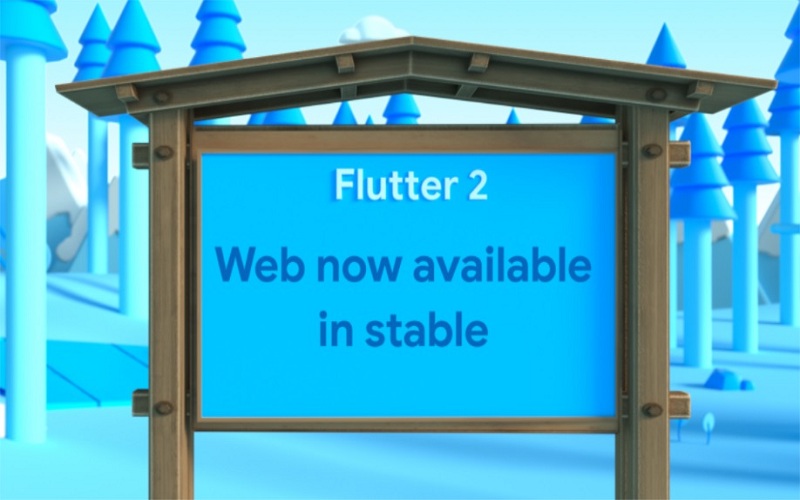Google has unveiled version 2.0 of Flutter, its open-source UI development kit that helps app makers build cross-platform software from the same codebase, reports VentureBeat.
While the upgrade ushers in a spread of new features, today’s launch event was perhaps mostly designed to highlight Flutter’s continued transition beyond mobile to support apps wherever they reside — the web, desktop, and even emerging form factors such as foldables.
The internet giant first unveiled Flutter at its I/O developer conference back in 2017.
Version 1.0 arrived on the scene in December 2018 with support for Android and iOS apps, but in the two-plus years since, Google has extended support (somewhat) to include web apps, MacOS, Linux, Windows, and even embedded devices.
However, such support has been offered only in early-stage iterations that were either unavailable to most developers, or not designed for production-grade apps — and that is what’s changing today.
Flutter’s web development kit has been sitting in beta since 2019, but today sees it achieve equal citizen status with its Android and iOS brethren.
For desktop developers, Google has also transitioned Flutter for Windows, MacOS, and Linux to the main “stable” release, edging it closer to prime time.
“This is a huge milestone for us — not only because the code itself is now ready for serious production-quality usage, but also because in the past it was only available to the tiny minority of Flutter users who were running the pre-release software development kit,” Flutter product manager Tim Sneath told VentureBeat in an email Q&A.
Using Google’s own Dart programming language, Flutter is designed to help developers build apps that feel native to each platform they run on while sharing as much code as possible to avoid duplicating efforts.
There are countless unique platform-specific considerations that developers need to make when designing apps, including how people interact with their devices (e.g., touch and swipe on mobile, keyboards and mice on desktop), the different screen sizes that users consume content on, and even the language they use to write.
This is why it has taken time to progress the various Flutter development kits through their release cycles.
“We’ve done a ton of work to get to this stage, including adding internationalization support, for example, IME editors for languages like Chinese, new widgets like TreeView and DataTable that are designed for desktop support, and better support for Apple Silicon-powered development machines,” Sneath said.
On the Linux side specifically, Canonical — the company that commercializes Ubuntu-related projects — revealed today that Flutter is now its default framework for developing desktop and mobile apps for the Ubuntu operating system.
This builds on last July’s announcement from Google and Canonical, which kickstarted Flutter’s expansion into the Linux realm and led to Canonical’s engineers contributing code to the Flutter project.
As part of this latest expansion, Canonical unveiled an early demo of a new Ubuntu installer app built on Flutter.

